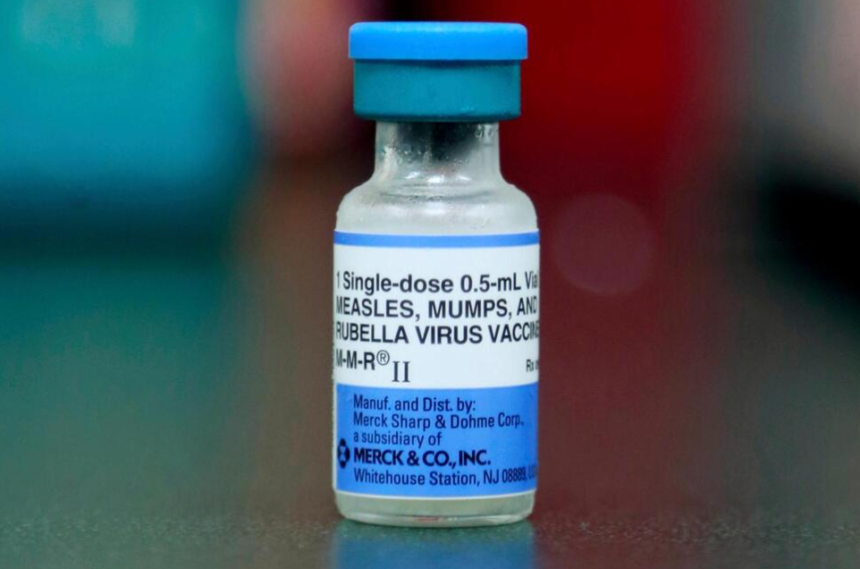The number of measles deaths worldwide increased by more than 40% in 2018, according to the World Health Organization and the U.S. Centers for Disease Control and Prevention.
Leading health agencies reported on Thursday that measles cases increased and deaths increased by more than 40% globally last year, following a sharp decline in vaccination rates during the pandemic. Compared to 22 countries in 2021, the highly contagious disease caused epidemics in 37 countries last year. In a recent report, the World Health Organization and the U.S. Centers for Disease Control and Prevention stated that it killed 136,000 people and sickened 9 million children, the majority of whom were in developing nations.
According to the agencies, measles cases increased by almost 20% during the pandemic, following a decline in vaccination rates to their lowest point in fifteen years. According to a statement from the CDC’s John Vertefeuille, “the increase in measles outbreaks and deaths is staggering, but unfortunately not unexpected given the declining vaccination rates we’ve seen in the past few years.”
Also read-Illuminating Eating Disorders: Insurance Data Points To Who’s Suffering
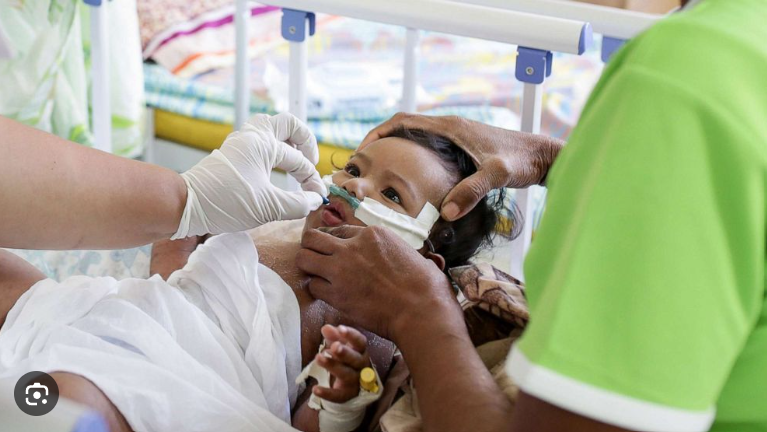
The measles vaccine offers excellent protection against the illness after two doses. The most vulnerable are children in developing nations in South America, Africa, Southeast Asia, and India. Immunization rates in developing nations are roughly 66%, according to the WHO and CDC, “a rate that shows no recovery at all from the backsliding during the pandemic.”
Symptoms of measles
Measles is among the most infectious diseases known and spreads in the air when an infected person coughs or sneezes. It is most common in children under 5. Symptoms include fever, cough, runny nose, and a distinctive rash.
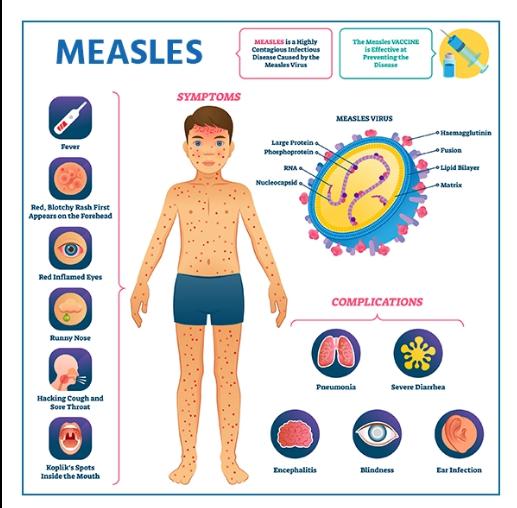
Most deaths are due to complications like encephalitis, severe dehydration, serious breathing problems, and pneumonia. Complications are most likely in young children and adults over 30.
The disease has also surged in some rich countries in recent years. British health authorities warned in July that there was an extremely high risk of outbreaks in London, with some areas of the capital reporting that only 40% of children were vaccinated.
Immunization rates against measles in the U.K. have never fully recovered since spurious claims that linked the vaccine to autism were made by discredited British doctor Andrew Wakefield more than two decades ago. No scientific studies have ever confirmed the link, but Wakefield’s research led to millions of parents worldwide abandoning the shot.
Transmission
One of the most contagious diseases in the world, measles is transmitted by breathing in the air that has been inhaled by an infected person or by coming into contact with infected nasal or throat secretions (coughing or sneezing). For up to two hours, the virus is infectious when it is in the air or on contaminated surfaces. Because of this, it is highly contagious; an infected individual can infect nine out of ten of their close contacts who are not vaccinated. An infected person can spread it four days before the rash appears to four days after the rash appears.
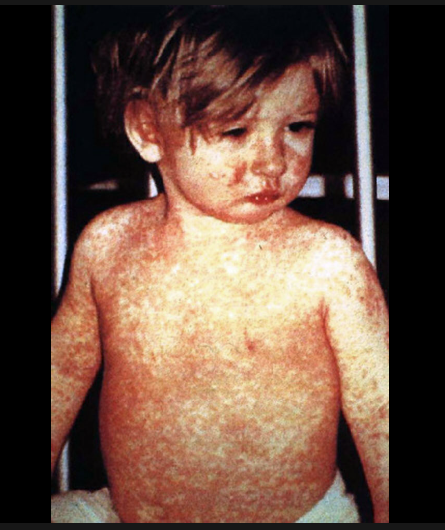
Measles outbreaks can cause serious complications and even death, particularly in undernourished young children. There are still imported cases of measles in nations that are almost completely eradicated.
Treatment
The measles has no particular treatment. Relieving symptoms, ensuring the patient is comfortable, and averting complications should be the main goals of care. Regaining fluids lost due to vomiting or diarrhea can be accomplished by treating dehydration and drinking adequate water. Maintaining a nutritious diet is also crucial. Antibiotics are sometimes prescribed by doctors to treat ear, eye, and pneumonia infections.
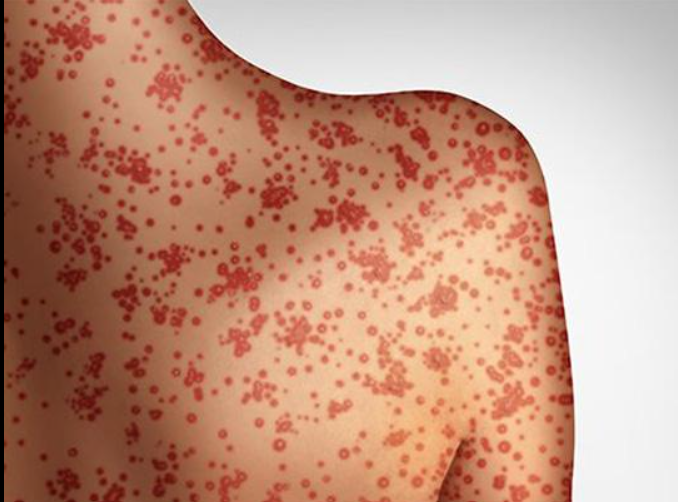
Two doses of vitamin A supplements should be administered, separated by 24 hours, to all children and adults who have the measles. Low vitamin A levels, which can happen even in children who eat healthily, are restored by this. It may lessen the risk of blindness and eye damage. Supplementing with vitamin A may also lower the number of deaths caused by measles.
Prevention
Vaccinating everyone in the community is the best approach to avoiding measles. Every child needs to receive a measles vaccination. The vaccine is affordable, efficient, and safe.
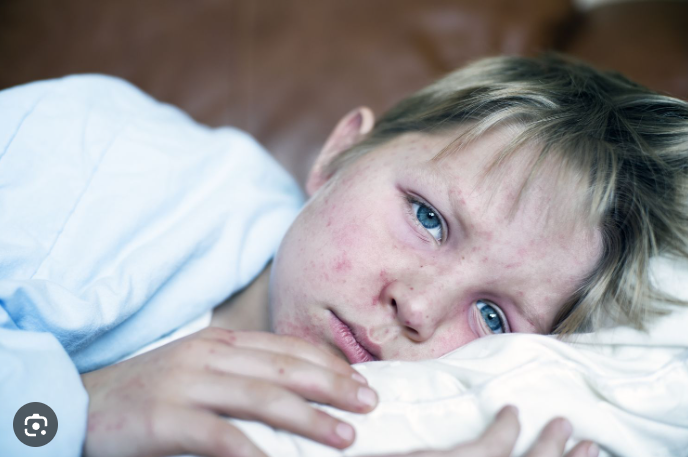
To ensure immunity, children should receive the vaccine in two doses. The first dose is typically administered between the ages of 9 and 15 months in other countries and at 9 months in countries where measles is prevalent. After a child reaches the age of 15 to 18 months, a second dosage should be administered. In addition to the measles vaccine, other vaccinations for the mumps, rubella,and/or varicella are frequently administered.
Also read-Childhood Cancer : Progress In Childhood Cancer Has Stalled For Blacks And Hispanics, Report Says
images source: Google
Disclaimer: The opinions and suggestions expressed in this article are solely those of the individual analysts. These are not the opinions of HNN. For more, please consult with your doctor







